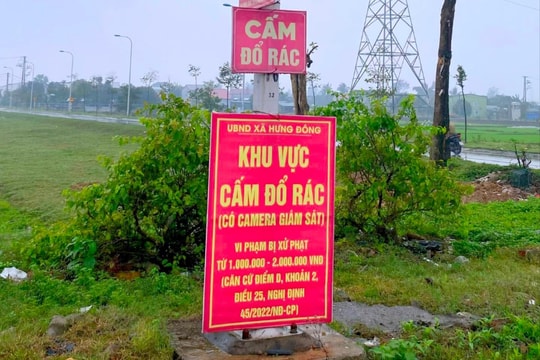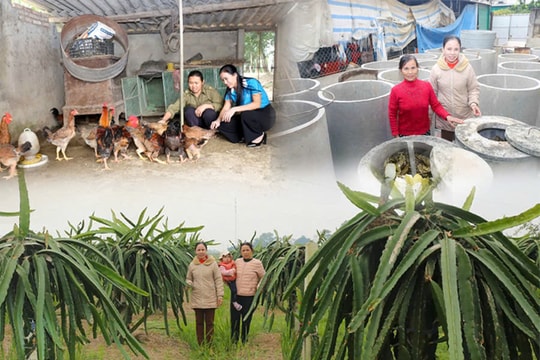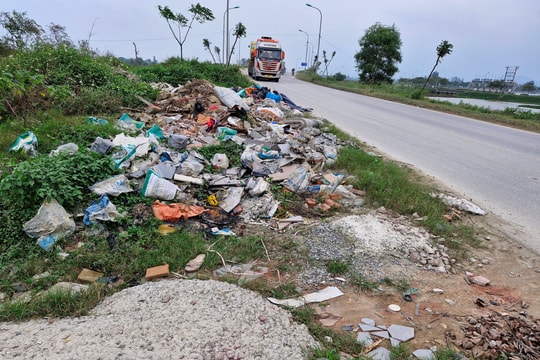Not thorough in classifying and treating domestic waste in Vinh city
The classification of household waste is necessary to contribute to protecting a greener, cleaner environment. However, in Vinh city, the treatment of waste after classification is still inadequate and not thorough.
Waste classification is not thorough
In Yen Vinh hamlet, Hung Dong ward (Vinh city), household waste is collected by environmental sanitation workers at the end of the day. Village and hamlet officials also regularly remind people to dispose of waste in the right place, and encourage people to sort waste at source.
.jpg)
Ms. Tran Thi Thao in Yen Vinh hamlet said: “We see that there are many benefits to sorting garbage, so we bought a garbage sorting bin to do it. We bury organic waste ourselves and process it into fertilizer. As for inorganic waste such as plastic bags, plastic bottles, and cans, we collect them and sell them to scrap collectors. Thanks to that, the amount of garbage that sanitation workers collect from our families is not much.”
However, through research in Hung Dong ward and some other wards and communes in Vinh city, the implementation of waste classification at source by households is not uniform and not thorough. There are still many households that do not implement it.
Through the feedback of some households here about the classification of waste at home, it shows that although the family has classified the waste, when the sanitation workers collect it, they dump it all in one truck, so the classification becomes ineffective. "My family's garden does not have a place to bury and process organic waste. Moreover, over time, I see that after sorting, the waste is brought to the collection point and then dumped in one place, so I do not classify it anymore" - said Ms. Nguyen Thi Van, Yen Vinh hamlet.

Ms. Ngo Ngoc Anh - President of the Women's Union of Hung Dong Ward said that the classification of waste at source and the treatment after classification are indeed inadequate. However, currently, the women's associations in the ward are focusing on promoting and maintaining the habit of classifying waste at source in households. With the support of the women's associations at all levels, 12 hamlets of Hung Dong Ward are divided into 7 groups to collect and classify waste. In 2024 and early 2025, about 500 trash bins were distributed to households to support and encourage waste classification and environmental sanitation.
“In early 2025, the Vinh City Women's Union selected Trung Thanh hamlet (Hung Dong ward) as a pilot model for waste classification. Currently, 100% of households in Trung Thanh hamlet have been equipped with trash bins and are classifying waste at home,” said Ms. Ngoc Anh.
.jpg)
Increase income from waste
Ms. Nguyen Thi Hoa, who lives on Tran Khanh Du Street, Hung Loc Ward, said that many households here have large gardens, grow vegetables, tubers, and fruits, so they often sort their garbage to make fertilizer, and only put inorganic garbage in the bin, so the amount of garbage every day is quite small. However, not all households can thoroughly classify garbage.
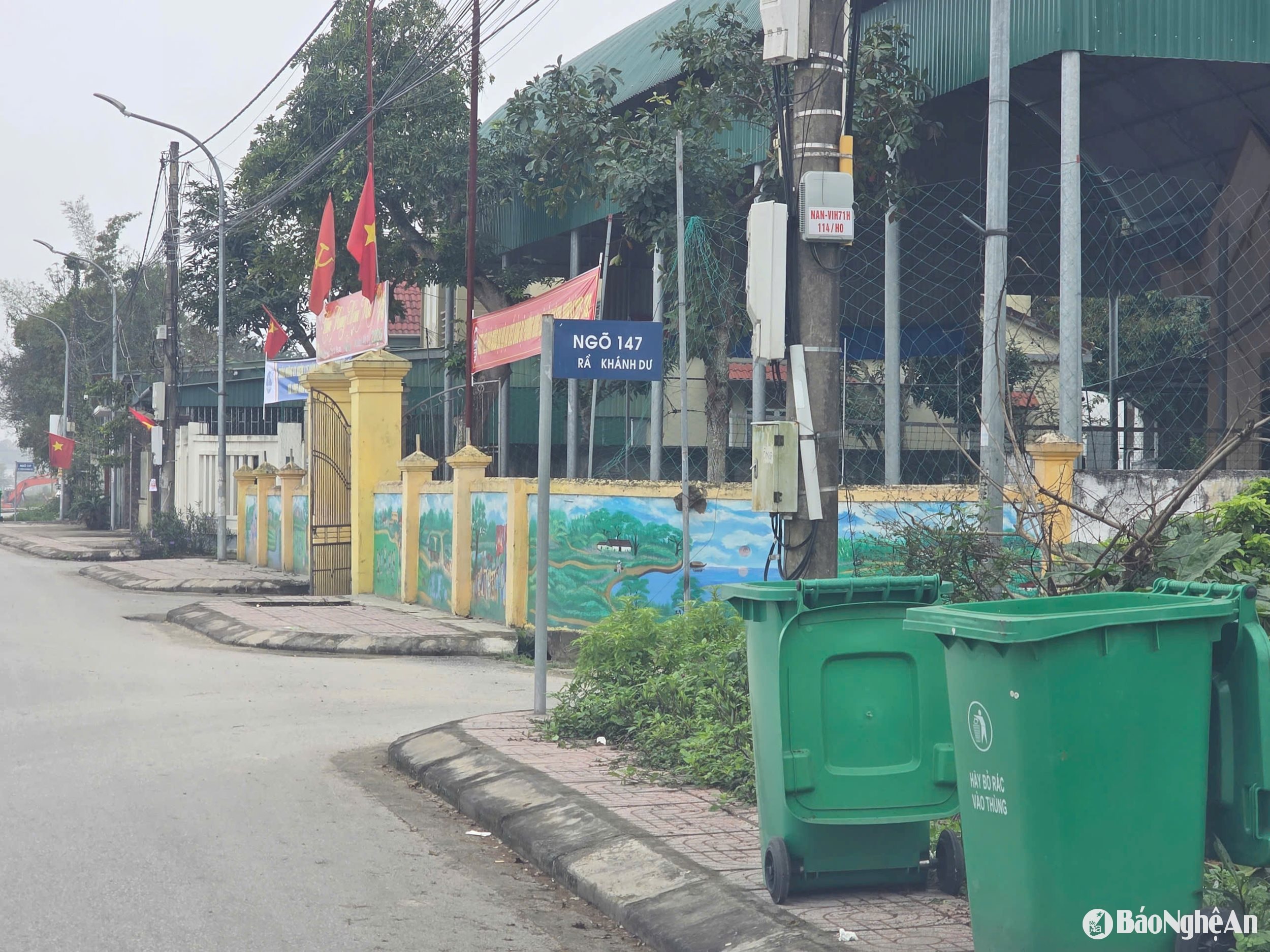
Parallel to Tran Khanh Du Street is Van Xuan Street. At a household waste collection point on Van Xuan Street (Hung Loc Ward), we met Ms. Nguyen Thi Phuong and some other people collecting scrap from garbage. Ms. Phuong said that she lives in Nghi Phong Commune (Vinh City), makes a living by farming, to earn extra income to cover her living expenses, she often goes to household waste collection points to pick up inorganic waste, mainly bottles, cans, plastic packaging, iron and steel materials to sell to scrap collection points. On a diligent and lucky day, she can earn 100-200 thousand VND; on a normal day, she earns tens of thousands of VND.
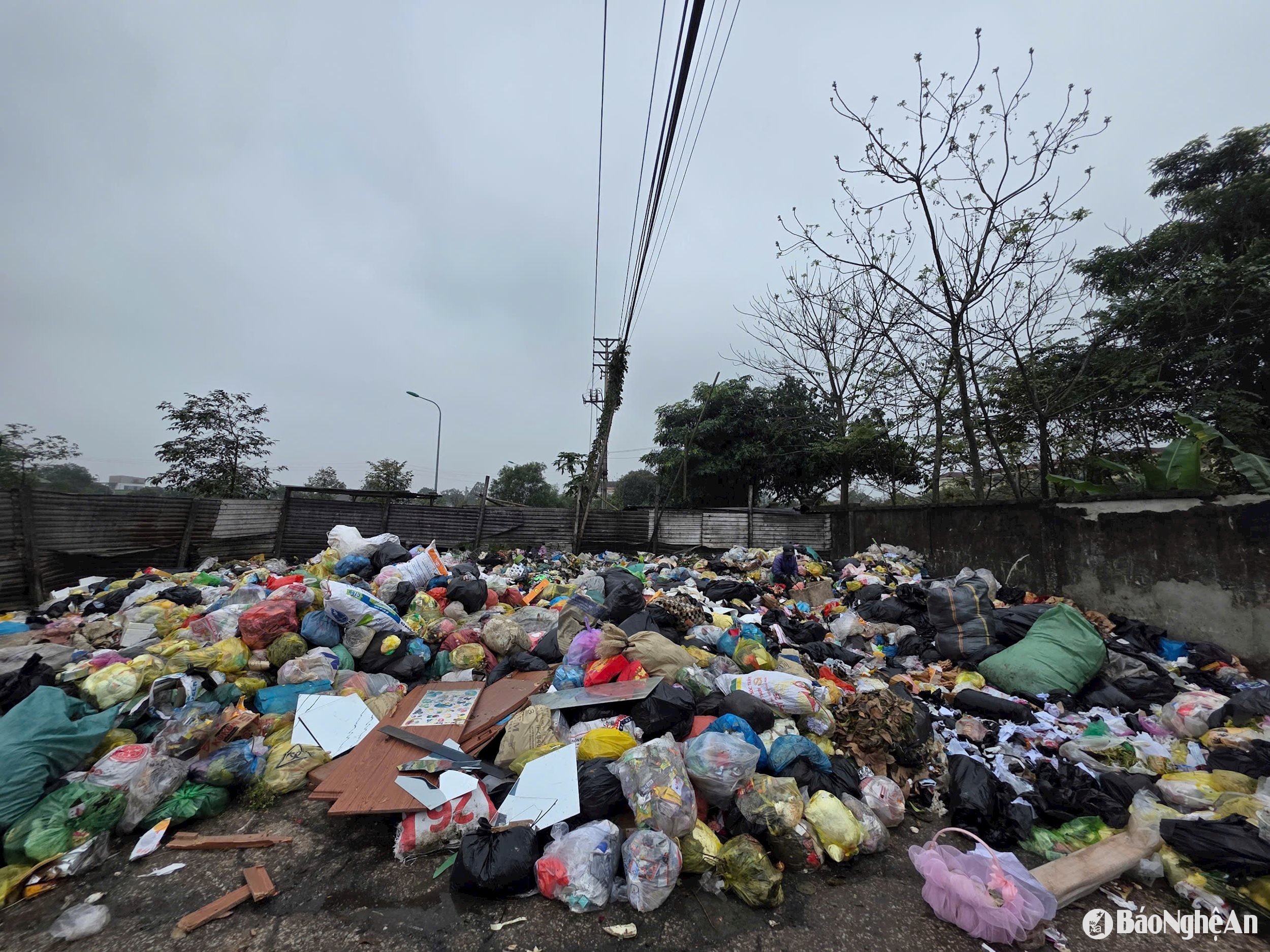
“Sometimes when we see cans and plastic bottles put in separate bags, my sisters and I feel very happy. If only organic and inorganic waste were kept separate, it would be less difficult for us to collect them,” said Ms. Phuong.
Currently, women's associations at all levels in the province are implementing the Project "Propaganda and mobilization of women to participate in classifying and treating waste at source and limiting the use of plastic bags in the province in the period 2013 - 2027" of the Provincial People's Committee.
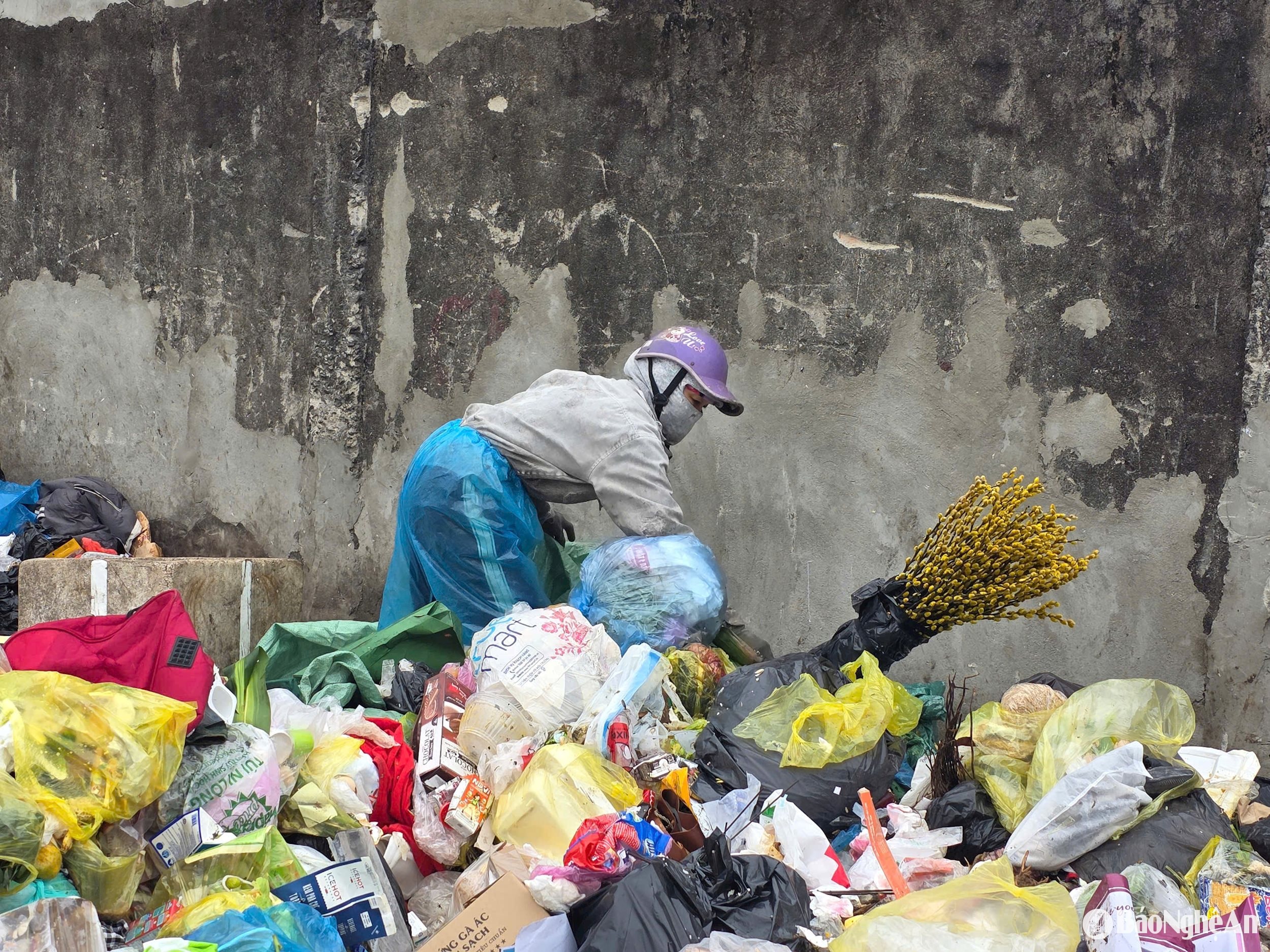
Activities of waste classification, plastic waste reduction, and environmental sanitation are concretized by women's associations at all levels through movements such as: "Building a family of 5 no's, 3 clean's"; responding to the National Target Program on New Rural Construction; "Anti-plastic waste" movement... with more than 400 models of waste classification and treatment at source and over 700 models of "Turning waste into useful things" from scrap sales after waste classification at source...

